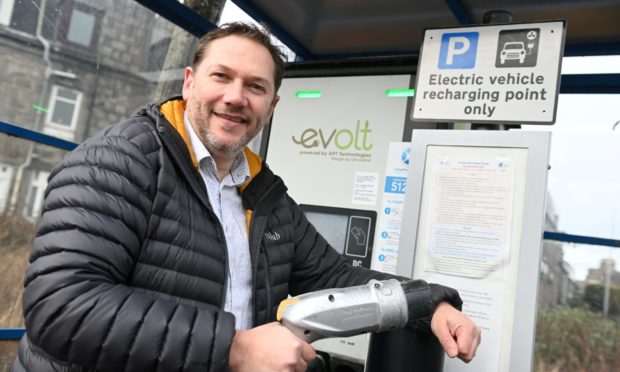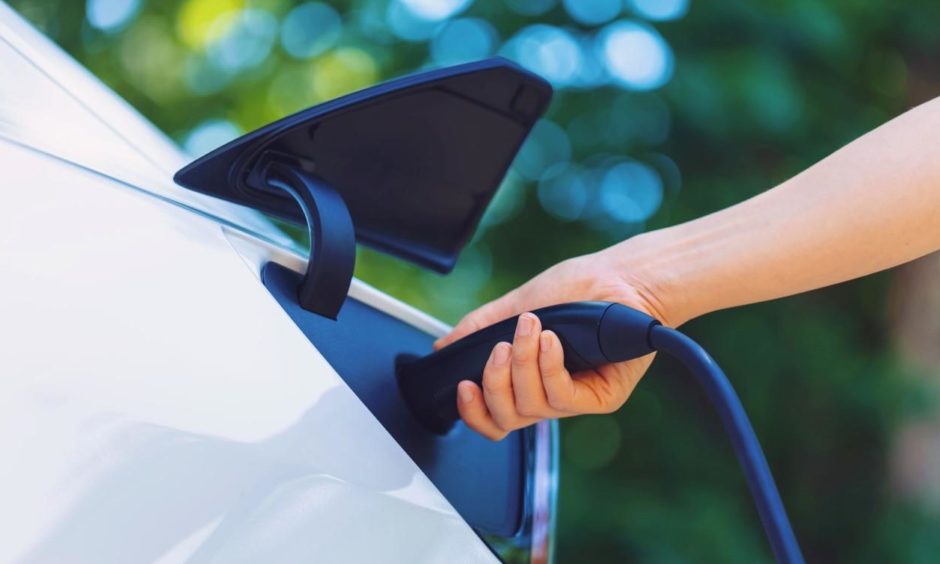Dozens of electric vehicle (EV) charge points could be installed in Aberdeen over the next five years at a cost of £675,000.
And it is estimated the bill will increase six-fold by 2030 if the local authority pushes ahead with its green plans.
Councillors are being recommended to commit the local authority to take on the cost of a plan to 2025 in the first instance, to ensure ‘exemplar’ status in Scotland.
The city council commissioned experts to help officials better understand the need for increased electric vehicle facilities, with a government target to phase out the sale of those only powered by petrol or diesel in the UK from 2030.
Efforts to keep pace with the rising demand for EV infrastructure will cost Aberdeen at least £4.15 million by then.
Town House chiefs are expected to encourage private landowners and independent firms to bear some of the burden.
But the £675,000 cost of meeting 2025 requirements is likely to be taken on by the council in the meantime.
Looking to the future
City growth convener and council co-leader Douglas Lumsden said: “This is us thinking about initial funding, with more to follow in the coming years.
“The report shows how officers think the demand will ramp-up and it now sets us forward to install more EV points – but we know we will need a lot more in the future.”
The recommended way forward would result in 91 publicly-available charge points in Aberdeen by 2025 and another 175 within the next five years.
Dozens of 7 kilowatt (kW) chargers would be installed at the city’s park and ride sites, with similar facilities in Chapel Street and Summer Street.
Efforts to bring in rapid 50kW sockets would also be focused at the park and rides, as well as at established petrol stations across Aberdeen.
So far, only 62 sockets are publicly available, at 54 council sites in the city.
Belief EV infrastructure will improve city’s health
The council’s consultancy firm Arcadis estimates that nearly 18% of all vehicles in Aberdeen will be electric in 10 years – meaning around 20,000 EVs based in the city.
Should the local authority do nothing, only 2.6% of vehicle-owners will have opted for battery electric or plug-in hybrids by 2030, the same forecast shows.
Those levels of EV use could reduce emissions of carbon dioxide by 13%, nitrogen oxides by 56% and particulate matter by 71% – tackling public health problems said have cost £11.3 million to treat and manage in the last year alone.
On Wednesday, members of the city growth and resources committee could adopt the electric vehicle framework as council policy and add the £675,000 cost of the 2025 goal to the list of things to be considered in March during the budget-setting process.
Scottish transport statistics from 2018 showed 99.6% of cars registered in Aberdeen and Aberdeenshire were powered by petrol or diesel, and more than half of those were significantly more polluting, older vehicles.

